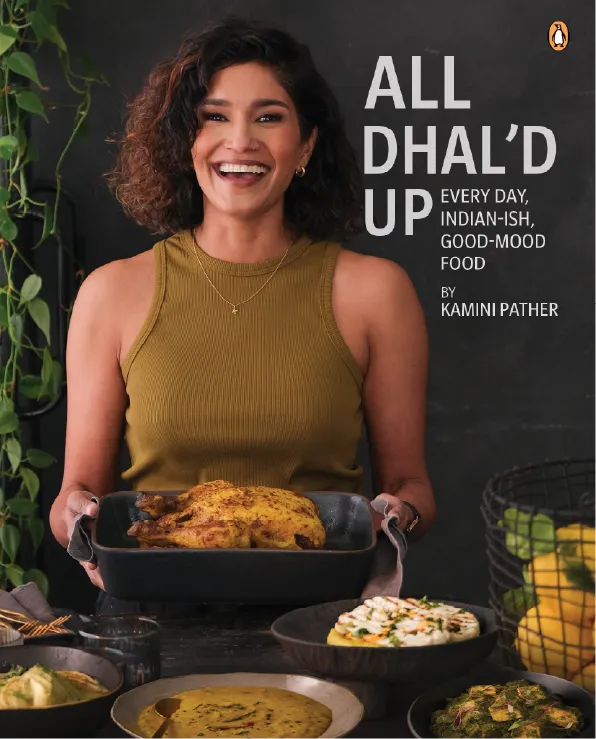Food Is the First Language
A sensory archive of memory, movement, and modern Indian-ish flavour.

The book moves between memory and modernity, offering recipes that are forgiving, joyful, and full of heart. It doesn’t ask for perfection—it invites presence. Each dish carries a story, a rhythm, a reason to return.
Image: Supplied,
Kamini Pather, known for her bold take on Indian-inspired cooking and her MasterChef South Africa win, offers something far more personal in All Dhal’d Up: Every Day Indianish Good Food. This is not just a cookbook. It is a sensory archive, a wellness guide, and a cultural invitation.
What does food mean to you
Is it a task, a comfort, a memory, a bridge? For me, food has always been a way back—to my Nani’s kitchen, to my dad’s Durban-style curry, to the shared breakfasts with my siblings where egg chutney and pudina toast were served with laughter. This book reminded me that food is not just about nourishment. It is about belonging.
“Good food is good mood”
That quote anchors the book, and it holds. The recipes are not just instructions. They are reminders. Eat until satisfied. Drink enough water. Move in ways that bring joy. Quiet the monkey mind. Don’t confuse texts with real connection. Cook. That is all. These are not wellness tips. They are invitations to live with rhythm and care.
Indian-ish, Durban-rooted, globally curious
I don’t cook often, but I found myself drawn in. Not by pressure, but by joy. The recipes are forgiving and full of heart. Golden milk feels like a hug. Green banana curry fills the room with warmth. Ricotta gulab jamun celebrates tradition with a wink. There is rasam and hot water roti, but also cauliflower rice lamb biriyani, dhal, pudina hummus, and rosewater ice-cream sandwiches with pistachio cookies. The book doesn’t ask me to choose between heritage and innovation. It lets them sit side by side.
Food styling without the performance
Visually, All Dhal’d Up is striking. No copper trays. No sweaty naans. Just clean, modern frames that reflect how Indian food lives in real kitchens. The photography carries mood and restraint. Even as someone who rarely cooks, I found myself imagining what it would feel like to prepare these dishes—not out of obligation, but out of joy.
Culture is not a backdrop—it’s the table itself
Food holds across generations, across borders. It brings us together in ways that language sometimes cannot. This book honours that. It doesn’t flatten identity. It expands it. It shows how diversity lives in the kitchen, in the spice rack, in the stories we tell through what we serve.
This isn’t just a cookbook. It’s a cultural invitation. It honours the people, the places, and the wellness embodied in every dish.
I won’t be cooking from it often—but I will return to it. For the memories it stirs. For the clarity it offers. For the way it reminds me that food is a language I understand, even if I don’t speak it through pots and pans.
*All Dhal’d Up is published by Penguin Random House, South Africa.
Related Topics: